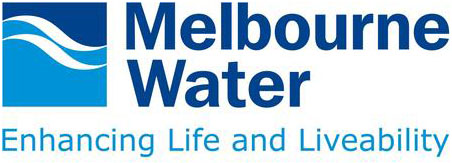resource library
ArrayCollaborative planning for the Fishermans Bend Urban Redevelopment
CRC for Water Sensitive Cities
Level 1, 8 Scenic Boulevard Monash University, Clayton Vic 3800 | Map:
Published: 15 May 2020
Project Overview
Fishermans Bend is a 485 ha urban renewal project in inner Melbourne. Over the next 40 years, it will replace existing industrial uses with a mix of mid and high rise development, as well as an advanced manufacturing and engineering precinct. Eventually, it will be home for over 80,000 people, with another 80,000 people visiting daily for work.
This scale and profile presented a unique opportunity in building water sensitive cities, as the economies of scale help to support novel infrastructure approaches and ‘best in class’ approaches to water servicing and urban development. However, this scale also introduced complexity due to the number of stakeholders and breadth of challenges.
The site itself is relatively flat, impervious and close to sea level, and sits at the end of the lower Yarra River floodplain. Adjacent areas in the City of Port Phillip have legacy flooding issues. Fishermans Bend also sits alongside the Melbourne CBD and is well serviced by water and sewer services, albeit with infrastructure designed for historical industrial land uses. Most of the land is privately owned, so partnerships with the private sector are essential for achieving the vision for the area.
The CRC for Water Sensitive Cities (CRCWSC) was invited to support several of its industry partners—the Department of Environment, Land, Water and Planning (DELWP), Melbourne Water, South East Water, the City of Port Phillip and the City of Melbourne—in planning Fishermans Bend.This involvement occurred through a series of discrete engagements beginning in 2014, and a continuing invite tothe Drainage Working Group that reports to the Fishermans Bend Taskforce Board.
Drivers and Objectives
• Green Star rating—The vision for Fishermans Bend to become Australia’s largest Green Star Community
• Sustainability Goals in the Fishermans Bend Framework
- No hotter than inner Melbourne
- Reduced nutrient discharges
- Sewerage discharges reduced by 50%
- Less than 100 litres of potable water used per person/day
- Reduced storm and flood impacts, including sea level rise
• Constrained site—Development that responds to significant environmental constraints including high water table, high levels of ground contamination, tidal and storm surge issues and projected sea level rise issues
• Exemplary urban design outcomes—Desire to incorporate water in the landscape, and to facilitate an approach to finished floor levels in buildings that could support exemplary urban design outcomes
Organisations
The CRC for Water Sensitive Cities (CRCWSC), The Department of Environment, Land, Water and Planning (DELWP), Melbourne Water, South East Water, the City of Port Phillip and the City of Melbourne
Project Outcomes
The framework outcome - key categories.
Cities providing ecosystem services
Green infrastructure habitats—Distributed green infrastructure such as green walls, roofs and public spaces, will create new micro and macro climates within the urban area, greatly increasing biodiversity and health of the overall urban/green space ecosystem.
• Water quality improvements—Distributed treatment of stormwater throughout the development will improve the health of downstream environments and groundwater reservoirs.
• Urban ecology strategy—This strategy focuses on ecological values and ecosystem services in green corridors, public open space design and building design, to green, cool and naturalise Fishermans Bend.
Cities as water supply catchments
Smart, integrated water infrastructure—More efficient water usage, sewer mining, rainwater tanks and third pipes will provide alternative water. These initiatives will also improve the quality of stormwater runoff, reduce water consumption and mitigate flooding risks.
• Integrated water management strategy—This strategy of ‘making water locally’ centres around a water recycling plant to provide Class A recycled water via dual pipe infrastructure to all FishermansBend South East Water customers.
Cities comprising water sensitive communities
Collaborative co-design workshops—Participants at the multiple research synthesis workshops shared knowledge and actively contributed to developing ideas.
• Design for the community—Implementing this variety of sustainable innovations in public spaces will greatly increase the community’s awareness of sustainability issues and increase their interest in looking after the development.
• Community are part of the solution—Building social resilience is a key outcome of the flood management approach.
Lessons Learnt
The process of planning for water sensitive cities in complex situations benefits from:
• a neutral broker who can facilitate innovation and collaboration, in this case the CRCWSC and the Fishermans Bend Taskforce
• iterative feedback loops between researchers, consultants and industry to create, test and refine ideas
• engagement with broad stakeholder groups at key stages through the process
• considering water services and urban form together as the same problem and as linked options. It is important that this integrated approach is continued through implementation when business as usual approaches may be proposed.
Project Cost
Most continued input to developing water sensitive outcomes for Fishermans Bend has been in-kind time from technical staff from each agency. However, the following direct costs were also incurred:
• South East Water funded the investigations and business case development for the proposed water treatment plant.
• Melbourne Water funded the participation of the CRCWSC and engaged GHD throughout the planning process. It also funded SJB Urban to prepare design guidance for areas projected to be affected by sea level rise.
• The City of Port Phillip and the City of Melbourne engaged Ramboll to prepare the Fishermans Bend integrated and innovative water management report.
• DELWP provided grant funding to undertake a risk assessment of future climate change impacts (underway, by HARC Consultants).
• Infrastructure costs and funding / financing mechanisms, as well as delivery responsibilities, are being investigated as part of developing an integrated infrastructure funding and finance strategy for Fishermans Bend. The strategy, which is due to be finalised in 2020, will be used to develop a broad business case for the preferred infrastructure outcome.
Timeframe
2012 - 2019 (see detail in case study PDF)
Acknowledgements
CRC for Water Sensitive Cities
